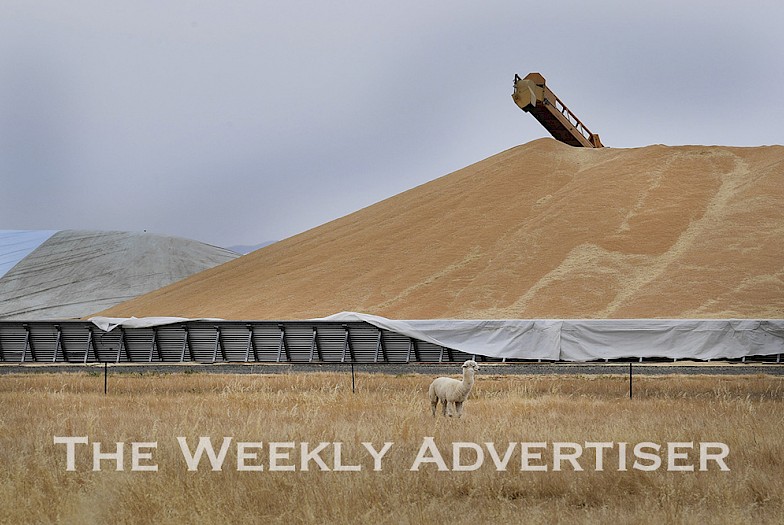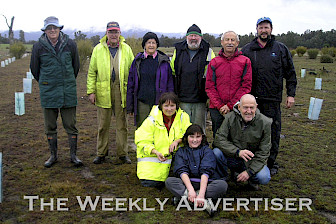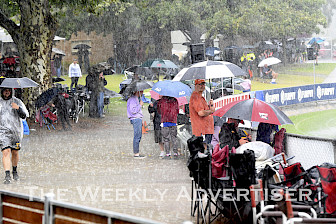Confidence is strong across most regions and commodity groups, with Victorian grain growers driving much of the upswing in sentiment.
Rabobank southern Victoria regional manager Deborah Maskell-Davies said seasonal and business conditions were both tracking well for the state’s farm sector, with sustained high commodity prices and favourable weather conditions driving profitability and optimism.
She said Victoria had recorded a particularly wet winter, which – combined with forecasts for good spring rain – had set up producers well for the remainder of the year.
“Dairy, beef, sheep and cropping farmers are all experiencing buoyant prices, and many farmers have enjoyed quite a sustained period of profitability,” she said.
“After a slow start, crops are now starting to take off and grain growers are forecasting average to above-average yields.
“The continuation of such favourable conditions is really allowing farmers to consolidate their debt, purchase more land to expand their enterprises, and upgrade equipment and infrastructure in their businesses. It really is a phenomenal time for the state’s farmers and any concerns about the impact of COVID-19 restrictions are being offset by these positive factors.”
The survey, completed last month, showed 34 percent of the state’s farmers thought conditions could improve even further over the year ahead, up from 25 percent last quarter, while 57 percent expected current conditions to remain. Six percent, down from nine percent, expected conditions to worsen. Of the small proportion expecting conditions to worsen, few attributed their negative sentiment to COVID-19.
Of those Victorian farmers expecting conditions to improve, 79 percent attributed their optimistic outlook to commodity prices – compared with 69 percent last quarter – while 71 percent pointed to continuing good seasonal conditions.
The survey recorded a significant jump in confidence among the state’s grain growers since a June survey, with 63 percent tipping an improvement in business conditions – up from 22 percent last quarter, while 37 percent of growers expected similar conditions to last year.
The survey also reflected improvement in the sheep sector, with 70 percent expecting similar conditions to last year, while 22 percent expected conditions to improve.
Business confidence remained strong among beef producers, with 33 percent expecting business conditions to improve and 56 percent anticipating a continuation of current conditions during the next year.
“Commodity prices are still outstanding for beef and sheep meat, which is helping position producers well for the year ahead,” Ms Maskell-Davies said.
She said the survey revealed farmers in the Wimmera-Mallee and Murray-Goulburn Valley as well as the High Country were particularly buoyed by the season, but added parts of the Mallee remained dry and spring rain would be essential for production.
Enterprise performance
With such a positive outlook for agricultural business conditions for the year ahead, Victorian farmers were accordingly optimistic about the expected performance of their farm enterprises.
The survey found 43 percent of the state’s producers expected their farm incomes to increase in the next 12 months – up from 32 percent – while a further 47 percent expected a similar financial result to last year.
Those expecting a weaker financial result stood at nine percent – down from 16 percent last quarter.
Victorian grain and beef producers were optimistic about the prospects for their gross farm incomes, with 46 percent of grain and beef producers, respectively, expecting a stronger gross farm income in 2021-22.
With the anticipated boost to farm incomes, Victoria’s farmers held strong investment plans for the year ahead.
The survey found 37 percent intended to increase investment and 56 percent expected to maintain investment at current levels.
Of those looking to increase investment, more than three-quarters, 77 percent, had it earmarked for infrastructure spending – such as fences, yards and silos – while new plant-machinery was identified by 55 percent and adopting new technologies by 53 percent.
A desire to increase livestock numbers was flagged by 44 percent of the state’s farmers for the year ahead, while there also remained a solid appetite to buy property.
Overall, views on viability in Victoria’s farm sector remained strong, with 98 percent of farmers surveyed saying they considered their businesses to be viable.
The next survey results, which usually involve a snapshot of 1000 farmers, are scheduled for release in December.
The entire September 29, 2021 edition of The Weekly Advertiser is available online. READ IT HERE!
The entire September 29, 2021 edition of AgLife is available online. READ IT HERE!






